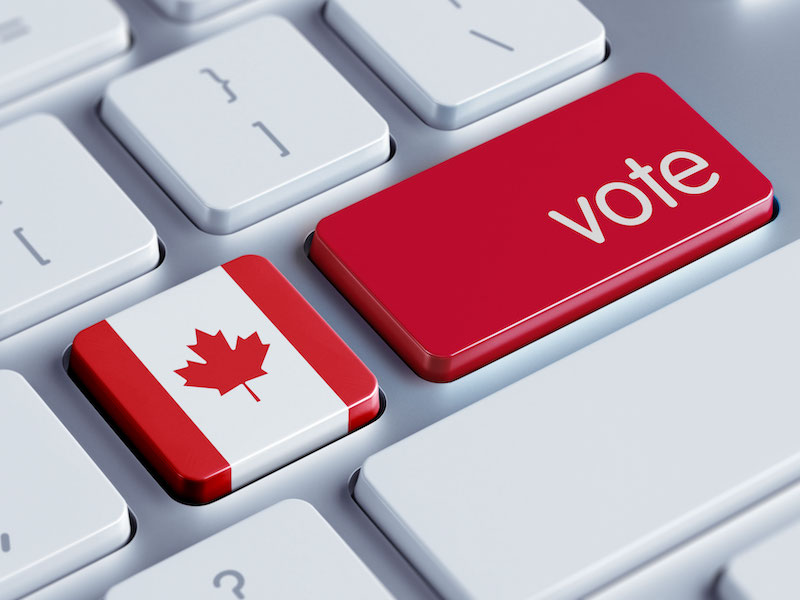

Housing and immigration will be key considerations in federal election
Mackenzie Investments VP offers his view on how the financial community could view party platforms in the Canadian election campaign
- Featuring: Dustin Reid
- September 14, 2021 September 14, 2021
- 13:01
- From: Mackenzie Investments

(Runtime: 4:57. Read the audio transcript.)
**
Affordable housing and immigration targets could be the most important factors in the federal election, says Dustin Reid, vice-president of investment management with Mackenzie Investments.
“Housing availability and affordability, and derivatives like inflation and family disposable income, are very important to Canadians,” Reid said. “A lot of people are obviously getting priced out and that’s challenging for many, many reasons.”
He said the three major parties have acknowledged the problem, and all have announced their strategies for tackling it.
“The parties aren’t necessarily, in the grand scheme of things, massively different. Everyone recognizes it’s a problem. Everyone’s willing to throw a lot of money at the problem,” he said.
For example, the Conservatives have pledged to build a million homes in three years and convert some federal buildings into communal housing.
“I think that’s interesting,” Reid said. “You need to have the space, you have to have the regulation, you have to have permits, you have to have engineering, you have to have the architectural plans, the labour, you have to have the materials. So, do I think that a million homes built in three years is possible? I’m not in construction but I think that’s challenging.”
The Liberals have pledged to build, preserve or repair 1.4 million homes in four years, while the NDP has promised to build at least 500,000 affordable housing units in the next decade.
Reid pointed out that immigration is a related issue because new Canadians are a significant driver of housing demand.
“Even last year, in 2020 — a massive pandemic year — we brought in 184,000 or so new immigrants into the country,” Reid said. The government’s 2021 target is 401,000 immigrants, with that figure “continuing to move higher, at least under a Liberal government,” he said. “It will be interesting to see if the Conservatives, if they do take power, want to trim the amount on the immigration side. Clearly the Liberals do not.”
Reid said if the Liberals retain power, the housing story could continue to be challenging.
He said the financial community generally looks favourably on immigration as a means to grow the economy, especially the way Canada does it: bringing in people who have valuable skills and who can hit the ground running.
“One of the reasons Canada has flourished over the last decade or so is because we have been relatively generous in our immigration policy,” he said. “That has generally been a net add to the economy. People bring experience, education, savings, are willing to spend, and that’s obviously quite constructive.”
The federal election, which occurs Monday with Canadians casting their votes at around 20,000 voting locations, will likely hinge on the perception of the governing Liberals through the Covid crisis.
Read said that while some will give Prime Minister Justin Trudeau high marks for successfully shepherding the country and unrolling the vaccines with few hiccups, he said others will question the amount of money he spent to stimulate the economy.
“Obviously some fiscal spend needed to happen last year or it was going to be a much worse recession,” he said. “But I think budget hawks are concerned about the long-term implications of what’s happened on the government fiscal side in the last 18 months.”
Reid said investors will be watching government balance sheets closely for the next few years.
“If whoever is in power has a five-year plan, and if that budget plan [is] seen by ratings agencies as a problem, and if we’re looking at a ratings downgrade for Canada’s AAA rating, that’s when I think Bay Street would get very concerned and we would see a lot more headlines and press around that.”
Moody’s affirmed Canada’s AAA rating in November 2020, but Fitch downgraded Canada to AA+ in June 2020 and affirmed that rating this year.
Reid acknowledged that the Canadian election does not carry the kind of international gravitas that a U.S. federal election does.
“The U.S. political machine and election generally has more impact on the U.S. economy and, I would say, the global economy in terms of just general risk appetite than Canada’s election has on our economy,” he said. “I don’t want to say this election is unimportant, because of course it’s important from a long-term directionality perspective. But generally speaking, the short-term impact on the economy or financial markets is relatively small in Canada.”
**
This article is part of the Soundbites program, sponsored by Canada Life. The article was written without sponsor input.
